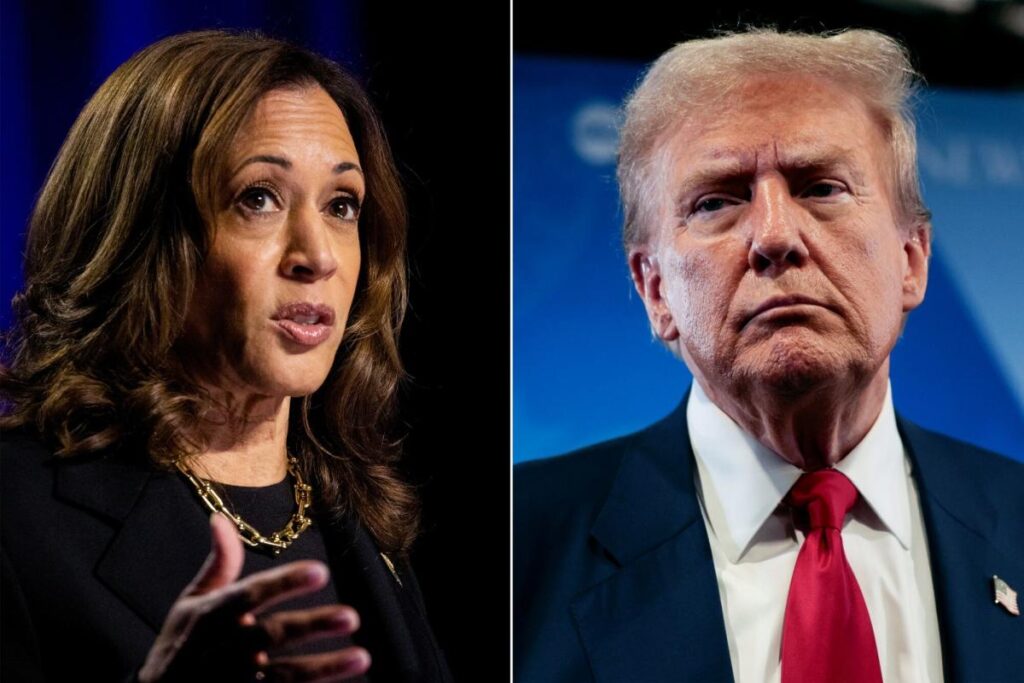The recent meetings of global financial leaders in Washington have been primarily focused on typical economic discussions surrounding debt, inflation, and interest rates; however, the underlying tension relates to the upcoming U.S. presidential election and the potential return of Donald Trump. As the financial community gathers for the annual meetings of the International Monetary Fund (IMF) and World Bank, there’s a palpable sense of anticipation regarding the implications of the election for global economic policy. Various officials, including Malaysia’s finance minister, have noted that conversations around the election dominate discussions, overshadowing critical issues like international trade and geopolitical stability posed by ongoing conflicts in Ukraine and the Middle East. This critical juncture has financial leaders concerned about the differing economic visions represented by Trump and Vice President Kamala Harris, with Trump’s policies threatening significant upheaval in global trade.
The interviews and seminars during the IMF and World Bank meetings are revealing a prevailing anxiety among global financial leaders, who recognize the impact that U.S. election outcomes could have on international stability. Trump’s previous presidency marked a departure from traditional U.S. trade policy, introducing tariffs that could escalate if he wins again. Financial analysts express that this upcoming election results in substantial uncertainty, shaping the sentiment at these meetings. Josh Lipsky, a director at the Atlantic Council, emphasized that market performance is vastly impacted by uncertainty, particularly regarding the prospect of Trump returning to power. Amid this uncertainty, diverse events highlighted the election’s potential implications, featuring key figures from both parties discussing economic recovery and forecasting the market’s direction.
While Trump has maintained a polarized stance towards multilateral institutions, some officials are hopeful that a second term might lead him to recognize their importance. Ajay Banga, the World Bank President, articulated optimism regarding the possibility of Trump leveraging alliances rather than retreating to isolationism. This sentiment hints at the complexities incumbent upon whoever assumes the presidency in understanding and navigating global financial networks. Discussions held in Washington suggest that enough groundwork exists for continued partnerships irrespective of shifts in U.S. policy, underscoring familiar channels of trade relationships that have endured through multiple administrations.
Additionally, discussions at the meetings reveal strong sentiments about the need for careful trade management moving forward. European Central Bank Chief Christine Lagarde warned that historical patterns demonstrate that trade barriers lead to economic instability, suggesting that future U.S. administrations should uphold constructive trade relationships. The fear among financial leaders is that heightened protectionist policies could jeopardize global economic recovery, especially in light of the lingering effects of the COVID-19 pandemic and current geopolitical challenges. Therefore, maintaining open lines of trade with global partners continues to be a prioritization highlighted by various leaders at the meetings.
Amid this backdrop, many in the financial sector are analyzing potential trade policies under a returning Trump presidency. Gatherings like those hosted by Gavekal Research have concentrated on examining the anticipated consequences of Trump’s return, particularly regarding tariffs. Their discussions noted Trump’s reportedly resilient frustrations concerning his past defeat and his complicated relationship with Chinese leadership. It’s anticipated that he would approach governance with an aggressive economic strategy that may prompt further tensions in trade relations. The ongoing dynamics suggest that financial executives are preparing for potentially tumultuous policy shifts if Trump regains the presidency.
Overall, these meetings offer a complex tableau of the current global economic climate, underscored by a crucial U.S. election. The interplay between traditional economic discussions and the looming potential of Trump’s presidency establishes an atmosphere of heightened anticipation. While many hope for continuity in U.S. economic policy, the reality is that uncertainty reigns, causing the world’s financial leaders to remain cautious as they ponder the implications of decisions made at this pivotal moment in time. Ultimately, the results of the election, just weeks away, will not only shape the U.S. economic landscape but also reverberate across the globe, determining pathways for international collaboration or isolation.

